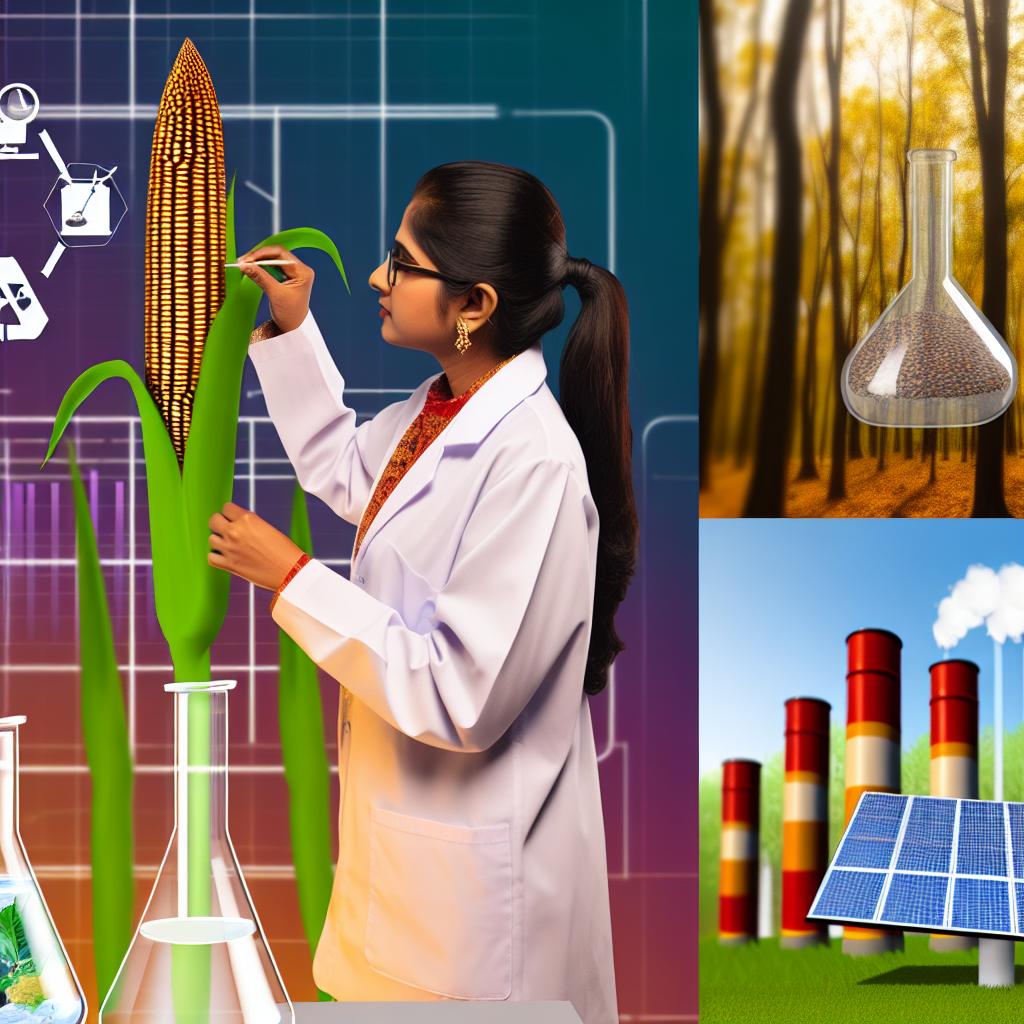Introduction
Biofuels have long been recognized as a potentially sustainable alternative to conventional fossil fuels. Their promise lies primarily in the potential for reduced greenhouse gas emissions and lessened environmental degradation. However, while biofuels such as ethanol and biodiesel seem to offer promising advantages, their production and consumption are also tied with a distinct set of environmental challenges. A comprehensive understanding of the impact of biofuels requires a lifecycle analysis, from the initial stages of cultivation and production to their eventual consumption.
Carbon Emissions
It is a commonly held belief that biofuels are carbon-neutral. This notion is founded on the idea that the carbon dioxide (CO2) emitted when biofuels are burned is counterbalanced by the CO2 absorbed during the plant’s growth that serves as the biofuel’s source. Yet, this perspective oversimplifies the reality. The processes involved in the cultivation, harvesting, and processing of biofuel crops consume considerable energy. This energy typically originates from fossil fuels, which means that biofuel production also contributes to greenhouse gas emissions.
Land Use and Deforestation
A pivotal environmental concern associated with the production of biofuels relates to land use. The large-scale cultivation necessary for biofuel crops has the potential to lead to widespread deforestation, destruction of habitats, and a loss in biodiversity. When forests or other natural landscapes are transformed into agricultural land, it results in the release of carbon stored in the original vegetation and soil, a phenomenon known as “indirect land-use change.” Such changes can ultimately negate the very carbon savings that biofuels aim to provide.
Water Consumption
Producing biofuels demands large amounts of water, especially when it comes to crops like corn and sugarcane. This requirement can pose significant challenges, particularly in regions already experiencing water scarcity, as biofuel production can further stress local water supplies. Therefore, the use of water in biofuel production needs careful management to ensure that their environmental impact remains minimal.
Chemical Inputs
Another issue in the production of biofuels is their reliance on chemical inputs. Cultivating crops for biofuels often involves significant quantities of fertilizers, pesticides, and herbicides. These chemicals can lead to soil and water pollution. For example, the runoff of nitrates from fertilizers into water bodies can cause eutrophication, a process that results in algal blooms and the subsequent decline of aquatic ecosystems.
Energy Efficiency
Evaluating the energy efficiency of biofuels is crucial in assessing their environmental impact. This efficiency is often measured using the Energy Return on Investment (EROI) metric, which compares energy output to the energy input necessary for production. Often, biofuels have lower EROIs compared to fossil fuels, suggesting they require more energy to produce than they ultimately deliver.
Second-Generation Biofuels
As biofuel technology advances, interest has increased in second-generation biofuels. These are derived from non-food crops and waste materials, potentially reducing land competition and the strain on resources. However, these second-generation biofuels present their own challenges, primarily related to technological and economic feasibility. Addressing these challenges is necessary to unlock their full potential.
Sustainability Considerations
Ensuring the sustainability of biofuels lies in balancing the environmental benefits against the potential drawbacks. Policies and initiatives, such as sustainable certification systems for biofuel production, play a crucial role. These systems aim to tackle environmental issues by promoting practices that reduce carbon emissions, protect ecosystems, and conserve resources.
Conclusion
Biofuels indeed offer an opportunity to shift towards more sustainable energy sources, yet we cannot ignore the environmental impacts they present. To improve the environmental performance of biofuels, there is a pressing need for an emphasis on sustainable agricultural practices, technological innovations, and appropriate policy frameworks. Understanding these issues is essential for making informed decisions about biofuels’ role in a sustainable energy future. For those interested in further exploring this topic, resources like environmental articles offer comprehensive analyses and perspectives on the impact of biofuels.
In summary, while biofuels have the potential to contribute positively to our energy landscape, it is essential to address the environmental challenges they pose. A holistic view is necessary, one that considers not only the benefits of reduced carbon emissions but also the broader environmental ramifications associated with their production and use. To truly realize biofuels’ potential, ongoing research, and the improvement of agricultural and production practices are imperative. As we look towards the future, balancing these considerations will be crucial in determining biofuels’ place in a sustainable energy strategy.


